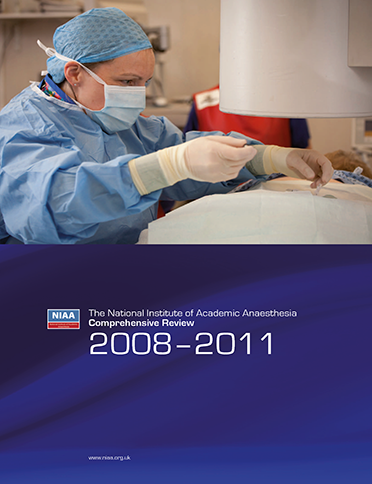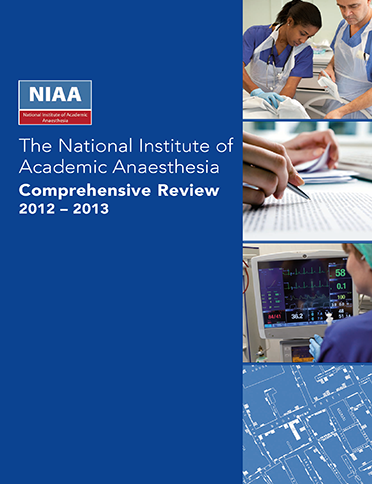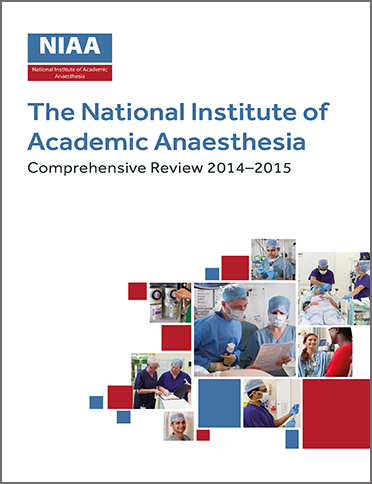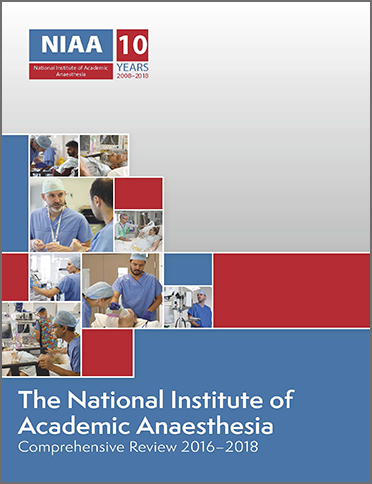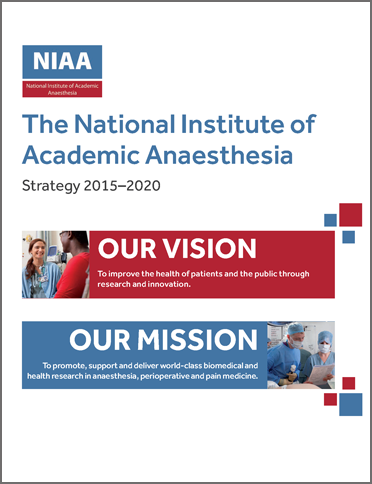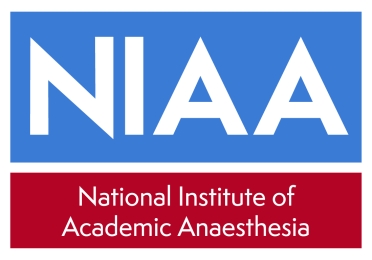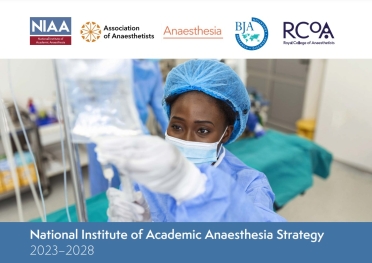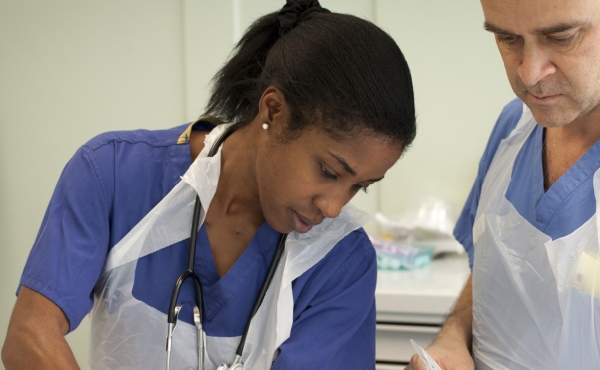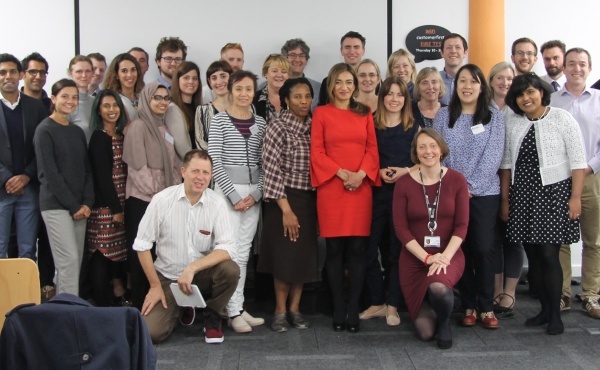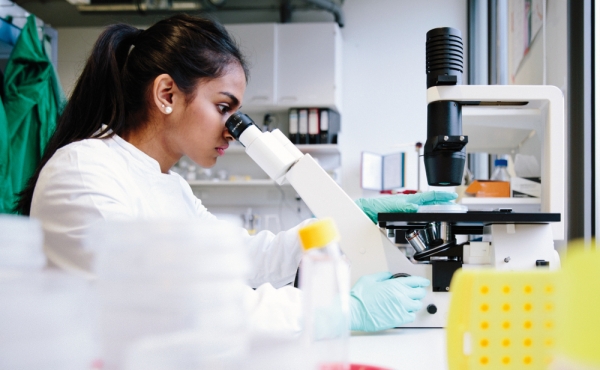National Institute of Academic Anaesthesia
The College is one of the four founding partners of the NIAA
Through the National Institute of Academic Anaesthesia (NIAA), the College engages with our colleagues and partners to fund, develop and deliver world-class research in anaesthesia and perioperative care. The NIAA is unique in academic medicine and an internationally admired model of specialty cooperation in bench-to-bedside research.

The NIAA was established in 2008 by the Royal College of Anaesthetists, the Association of Anaesthetists and the journals Anaesthesia and the British Journal of Anaesthesia. In addition to these four founding partners, the NIAA encompasses numerous anaesthetic specialist societies. The College is responsible for the governance and finances of the National Institute of Academic Anaesthesia.
Our Vision:
To improve the health of patients and the public through research and innovation.
Our Mission:
To promote, support and coordinate world class health research and innovation in anaesthesia, perioperative care and pain management in the UK.
Values Statement:
The National Institute of Academic Anaesthesia is an equitable, effective, efficient and engaging organisation; promoting and supporting equity, diversity and inclusivity with all its activity.
Aims:
- To strategically invest efficiently and effectively through the activities of our funding partners and facilitate funding for national and global health priority areas as defined by patients, public, policy makers and the specialty.
- To support and promote career development for students, early-career researchers and developing research leaders.
- To champion and advocate for the importance of research in improving the health of patients and the public; including all forms of innovation and research across the translational pathway.
- To foster and develop partnerships, collaboration and engagement within our healthcare environment.
-
To ensure that we operate in an ethical, environmentally sustainable, efficient and cost-effective manner.
View the NIAA's Strategy for 2023-2028.
Grants
Along with the other founding partners and the specialist societies, the RCoA provides funding for the biannual NIAA Grant Rounds. The specific grants available can change for each round and are advertised on the NIAA website.
NIAA grants are aimed at assisting researchers at all stages of their careers:
- Undergraduate: John Snow intercalated BSc Award
- Doctoral: PhD Studentships; small education/travel grants
- Established researchers: Project Grants (clinical and non-clinical)
- Senior academic awards: Fellowships (clinical and non-clinical); BOC Chair.
For the most up to date information, visit the Current Funding Opportunities page on the NIAA website.
NIAA publications
The NIAA publishes regular Comprehensive Reviews to report on our development and the progress of NIAA-funded research initiatives.
You can also click below to read the current NIAA Strategy, which runs from 2015-20.
There are further NIAA-related publications, pertaining specifically to training in academic anaesthesia, on the Academic Training page.
NIAA Review 2008-11
The first ever Comprehensive
Review includes a foreword from HRH The Princess Royal
NIAA Review 2012-13
Covering NIAA developments from 2013-14 including the research Priority Setting Partnership
NIAA Review 2016-18
Special 10-year review looking back at the NIAA's first decade as well as more recent initiatives
For our specialty, it is a matter of great pride that NIAA is now uniquely placed nationally and internationally to be the most influential and dynamic organisation of UK academic anaesthesia aiming to make meaningful differences to patients’ lives worldwide by supporting research and quality improvement.
Would you like to know more about the NIAA?
For more information on the activities of the National Institute of Academic Anaesthesia, including details of forthcoming grant opportunities, please visit the NIAA website.
NIAA Founding Partners
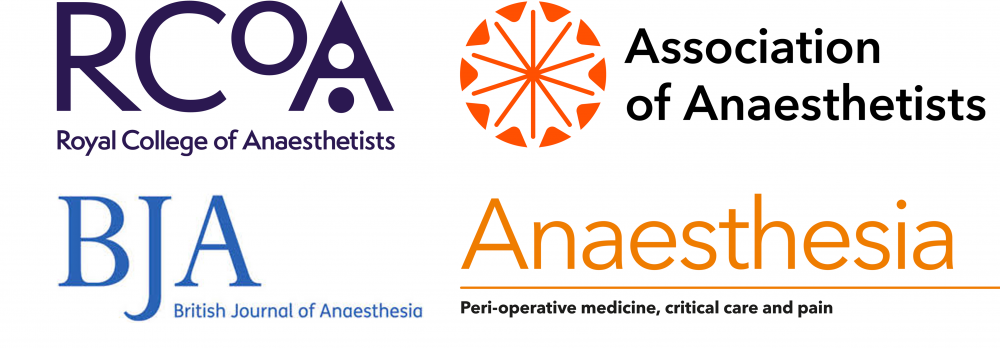

Ramani is Professor of Perioperative Medicine at UCL and Honorary consultant in anaesthesia, perioperative and critical care medicine at UCL Hospitals. She holds several national leadership roles including as National Clinical Director for Critical and Perioperative Care at NHS England. She is the inaugural Director of the NIHR Central London Patient Safety Research Collaboration and theme lead for the Critical and Perioperative Care theme of the UCLH Biomedical Research Centre. She is the Clinical Lead for the Perioperative Quality Improvement Programme (PQIP).
She was previously Director of the Health Services Research Centre at the Royal College of Anaesthetists, a Council member of the Royal College of Anaesthetists (four years) and advisor on academic training to the National Institute for Academic Anaesthesia (seven years).
She was recruited to the role of NIAA Board Chair in July 2024.

